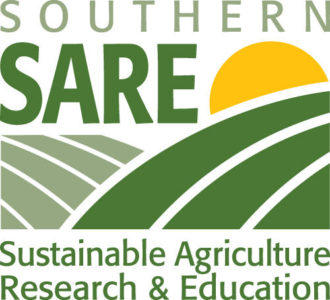A select group of high school and undergraduate college students are helping further sustainable agriculture through a Southern Sustainable Agriculture Research & Education grant program.
The James Harrison Hill, Sr. Young Scholar Enhancement Grant Program is an extension of SSARE’s Research & Education Grants program, which allows researchers conducting SSARE-funded projects to partner with high school and undergraduate students on sustainable agriculture research.
Only Research and Education Grant recipients with on-going SSARE-funded projects are eligible to apply for the James Harrison Hill, Sr. Young Scholar Enhancement Grant Program. If selected, this program gives them the ability to hire high school or college students to participate in their research program.
The first James Harrison Hill, Sr. Young Scholar Enhancement Grants were awarded in 2013 with the goal to engage youth in the research process and encourage the pursuit of college degrees emphasizing sustainable agriculture.
Grant awards for 2021 include:
LS20-332 Silvopasture for Poultry Production with Outdoor Access: Impact on animal welfare, economic, and environmental parameters, Virginia Polytechnic Institute and State University
LS19-316 Forage establishment and management in Arkansas’ silvopasture for small beef producers, University of Arkansas
LS18-300 Extending Roots of Fresh Stop Markets Across the Southeast Region, University of Kentucky
Learn more about the Young Scholar Enhancement Grant Program.
Published by the Southern Region of the Sustainable Agriculture Research and Education (SARE) program. Funded by the USDA National Institute of Food and Agriculture (NIFA), Southern SARE operates under cooperative agreements with the University of Georgia, Fort Valley State University, and the Kerr Center for Sustainable Agriculture to offer competitive grants to advance sustainable agriculture in America's Southern region. This material is based upon work that is supported by the National Institute of Food and Agriculture, U.S. Department of Agriculture, through Southern Sustainable Agriculture Research and Education, under sub-award numbers: LS20-332, LS19-316, and LS18-300. USDA is an equal opportunity employer and service provider. Any opinions, findings, conclusions, or recommendations expressed in this publication are those of the author(s) and do not necessarily reflect the view of the U.S. Department of Agriculture.
